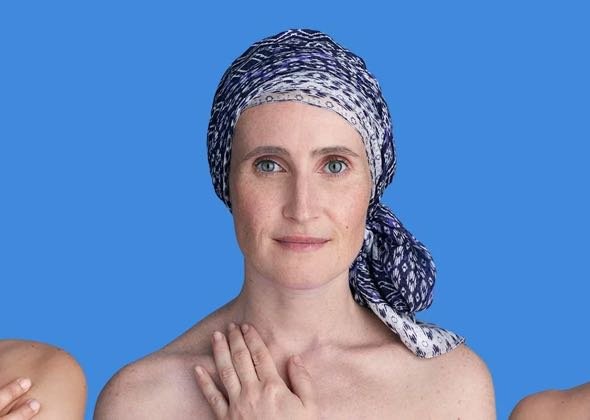ALLERGY:
WHEN THE IMMUNE SYSTEM OVERREACTS
Allergic reactions range from skin rashes to hay fever
The body has to deal with all kinds of threats from the world we live in, including from bacteria and viruses. When under attack, the body calls on its immune system to defend itself.
The only problem is, sometimes the immune system can overreact, triggering into action even when there’s no danger. Allergic reactions are a good example of this.
Allergy essentially involves the body “misrecognising” harmless elements - allergens - and reacting excessively to them, as if under threat. Allergy has varied signs and symptoms from sneezing to skin rash and happens in parts of the body where the “inside” meets “outside”: The eyes, nose, lungs, gut and the skin.
WHAT ARE THE DIFFERENT TYPES
OF SKIN RASHES?
Skin: The #1 site of allergic reactions
Skin allergy is a major problem treated in dermatology and allergy clinics. Your skin is the protective envelope around your body. It acts as an “interface” with the outside world and is therefore highly exposed to allergens. Since we use them for so many tasks, our hands are particularly prone to allergic reactions.
Skin allergy rashes take many forms, including hives, allergic or contact dermatitis and eczema. Each has its own specific clinical signs and treatments, but the cardinal features are itching and burning skin, as well as more dramatic reactions with raised swelling or rashes. Click HERE for detailed information on skin allergic reactions.
WHAT CAN I DO
ABOUT SKIN ALLERGY?
If your skin have an allergy-prone skin, you may wish to see a dermatologist or allergist. But also talk to your pharmacist about products specifically formulated for sensitive to allergic skin, or thermal spring water mists. Toleriane Ultra If your skin needs SOS soothing now, look HERE for tips.
EYES: ALLERGIC CONJUNCTIVITIS
Eyes are prone to seasonal allergies
Allergens landing on the eye’s protective membrane cause redness, watering and lots of annoying itching. Factors responsible for seasonal allergies such as pollen, as well as other airborne allergens like pet fur [ART-ALLA2] are key causes. But if you regularly suffer from the condition, it’s also worth taking a look at your bathroom shelf. Certain products (mascara, foundation, sun protection…) can migrate towards the eye, with some of the ingredients they contain adding to the irritation.
WHAT CAN I DO
ABOUT ALLERGIC CONJUNCTIVITIS?
Over-the-counter allergy eye drops from your pharmacy are your first point of call, but there are other simple things you can do to reduce eye symptoms. When your smartphone tells you pollen levels are off the charts, make sure you shower and wash your hair when you get back home as swishing your locks may cover your skin with pollen! And of course, avoid rubbing your eyes as the itch will only get worse, and never touch your eyes without washing your hands first.
NOSE: HAY FEVER
(ALLERGIC RHINITIS)
Seasonal allergies often affect the nose
The body “thinks” it is under attack from pollen and floods the system with pro-inflammatory substances. The symptoms are basically a stuffy nose and lots of sneezing, though hay fever often goes hand in hand with conjunctivitis and asthma.
WHAT CAN I DO
ABOUT HAY FEVER?
We all agree that life is too short to sit inside all spring with the windows shut, so ask your pharmacist about favourites to help with the condition such as antihistamines and steroid nasal sprays. If your nose is looking a little red and irritated, try a soothing care product to be left on overnight.
LUNGS:
ALLERGIC ASTHMA
The lungs are affected by airborne allergens such as pollen
Allergic asthma involves airborne allergens - pollen of course, but also household offenders such as animal dander and house dust mite - which get into the lining of our lungs. The allergic reaction causes the muscles around our airways to tighten up. Their lining becomes inflamed and secretes excess mucus. This leads to coughing, wheezing, shortness of breath and even severe asthma attacks in some cases.
WHAT CAN I DO
ABOUT ALLERGIC ASTHMA?
Asthma is a complex condition to be managed by your doctor, but the mainstay of treatment involves “preventer” and “reliever” inhalers.
GUT: FOOD ALLERGY
Food allergy can cause a skin rash
Food allergies are on the rise, affecting 5% of adults and 8% of children today. 1They involve food proteins - famous examples include peanut, milk and shellfish - which trigger an immune reaction in the gut with the potential to affect the whole body. Reactions range from mild (stomach ache, itchy mouth, hives) to severe (swelling of the mouth and throat, and even life-threatening anaphylaxis). Food allergy rashes are usually widespread over the whole body and in the form of hives (raised red lesions that look like bullseye targets).
WHAT CAN I DO
ABOUT MY FOOD ALLERGY?
The mainstay of treatment involves an elimination diet. Your allergist will advise you on whether you need to carry an Epipen and explain how to use it.
If you are prone to reactions such as these, could you be allergic to your everyday or beauty habits?
Click HERE for basic information about allergies.
Food allergy: Epidemiology, pathogenesis, diagnosis, and treatment.
Sicherer SH1, Sampson HA2




